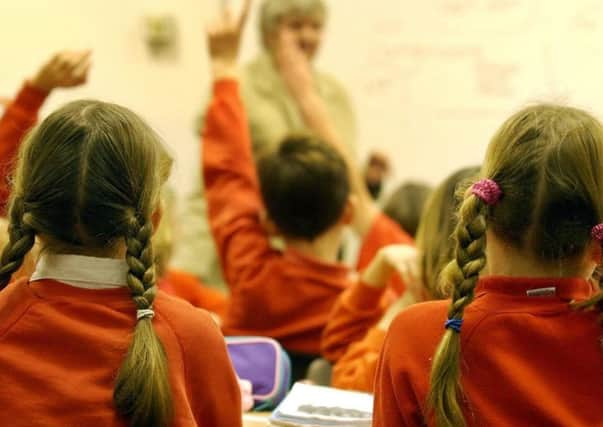Justine Greening: Hard-workers should not have to learn to '˜make-do'


When I was growing up there was no real choice at all. You got what you were given. I went to my local comprehensive school because everyone did.
And in this system some people got a good education. I was lucky – I had great teachers who taught me, encouraged me and inspired me.
Advertisement
Hide AdAdvertisement
Hide AdPeople never forget great teachers, because the impact they have on our lives goes beyond that of other people that we will go on to meet. But some people – and some places – have been left behind. The schools they went to and are going to weren’t good enough. We can never accept the randomness of a postcode lottery in education if we are to succeed as a country.
That’s why we will keep pursuing our ambitious reforms. On what children are taught, on making sure they are taught well and on how schools provide them with the knowledge and skills they and our businesses need for success in modern Britain. That’s why we’re pursuing a new gold standard in curriculum and assessment, together with an expectation that the vast majority of young people will study the EBacc subjects – this is an academic core of subjects – that keep their options open for young people.
We want all our children taught in good and outstanding schools. So we have an academies programme that hones in on inadequate and coasting schools – to ensure they improve. And our reforms are working – 1.8 million more children in good and outstanding schools since 2010, 1.8 million more children getting a better start and a better chance to realise their potential.
We want schools that work for everyone. In the future we will have comprehensive schools and grammar schools. Schools which focus on maths, on music and other specialisms, and schools for young people who want to pursue and develop their technical talents. So this free schools programme is vital if we are to make sure that parents continue to have the education choices that they want for their children.
Advertisement
Hide AdAdvertisement
Hide AdBut we know that there is more to do. Less well-off children enter school behind their wealthier peers already.
And once at school they fall further behind – because they’re less likely to go to a good school.
They’re less likely to then go to university – and even if they get there, they go on to earn lower incomes than their advantaged peers, even if they’re in the same top jobs.
Yet they are more likely to do further education – which we believe has been neglected and underfunded for decades. So we should never accept an education system that is so tilted against the disadvantaged. But we believe it’s not just disadvantaged children and young people that our education system can deliver much more for. This Government will not lose sight of other children, from ordinary working families.
Advertisement
Hide AdAdvertisement
Hide AdIf we are to build a country that works for everyone, we need to do more for young people from these families. Families on modest incomes, who are being let down by a shortage of good schools.
Statistically, they are families that tend to live outside the inner cities – of course, it has been inner cities that have been the focus of many of our education initiatives – and it has been the inner cities that have commonly been the focus of education initiatives. Instead, they live in our suburbs and our coastal areas, mostly outside Greater London, in many towns in the North of England. But if these young people can do better, then our whole country will do better.
If these children received the same grades as their wealthier peers at the end of secondary school, then we’d have thousands more pupils better equipped to do well in later life.
When I was growing up, there was a phrase I often heard: “make do”. I absolutely hated that. I heard it, but I didn’t want to just make do. I wanted more than that. Well, this is a Government that believes that everyday ordinary working families shouldn’t have to “make do”. We believe they deserve better than that.
Advertisement
Hide AdAdvertisement
Hide AdThese families work hard, and sometimes – as I know from my own childhood – there is so much ‘stuff’ that needs to be done, they don’t have time to ask why there isn’t more help – there isn’t time to have a say about what should be better. My earliest memories of politics are of my Dad shouting at the TV when the news was on – that was him having his say.
But do you know what? These families shouldn’t have to grow sharp elbows to get the public services they deserve. This Government knows that we need to repair the link between hard work these families put in and the rewards they receive – we want to build a fairer society for them. That’s the national change that we will pursue as Britain leaves the European Union. That’s part of the plan for Britain.
Justine Greening is the Education Secretary. Born in Rotherham, this is an edited version of her keynote policy speech this Easter.